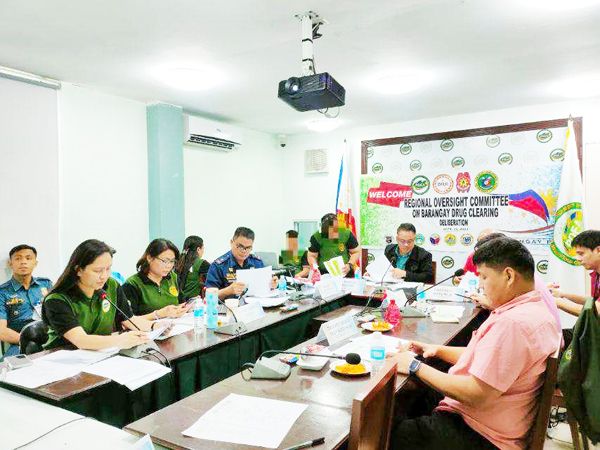CEBU CITY – Twenty-nine more barangays were added to the list of drug-cleared areas in Central Visayas.

THE Regional Oversight Committee on Barangay Drug Clearing during a recent meeting. (Photo from PDEA-7)
The 29 barangays were included after the deliberation process conducted by the Regional Oversight Committee on Barangay Drug Clearing (ROCBDC) at the headquarters of the Philippine Drug Enforcement Agency-Central Visayas (PDEA-7) in Barangay Lahug, Cebu City on Wednesday, September 25.
Fifteen are from Bohol, six from Negros Oriental, five from Cebu, and three from highly urbanized cities – Barangays Ibo and Talima in Lapu-Lapu City and Barangay Pagsabungan in Mandaue City.
Leia Alcantara, information officer of PDEA-7, said the declaration of the barangays as drug-cleared signifies that during their application, all drug personalities identified in the community have been accounted for and intervention programs were successfully implemented.
The intervention programs include the community-based drug rehab programs for persons who used drugs, Alcantara added.
The deliberation process was presided over by PDEA-7 Regional Director Emerson L. Margate, chairperson of the committee.
Other committee members present were vice chairperson Celerino Magto Jr., chief of the Local Government Monitoring and Evaluation Division of the Department of the Interior and Local Government; Dr. Jonathan Neil Erasmo of the Department of Health-7, Police Major Rey delos Santos of the Police Regional Office-7, and George Paul P. Alcovindas, PDEA-7 assistant regional director and regional BDCP team supervisor.
Representatives from the local government units, including some mayors, were present online.
Fifty-one drug-cleared and six drug-free barangays in Siquijor and the drug-free barangay of Cawhagan in Lapu-Lapu City officially retained their status during the deliberation.
Alcantara said the continued implementation of anti-illegal drug programs in drug-cleared and drug-free barangays, including the conduct of anti-illegal drug operations, is a critical part of the BDCP.
“This ensures that the barangays are always ready to address any new drug activities or relapse cases,” Alcantara said.